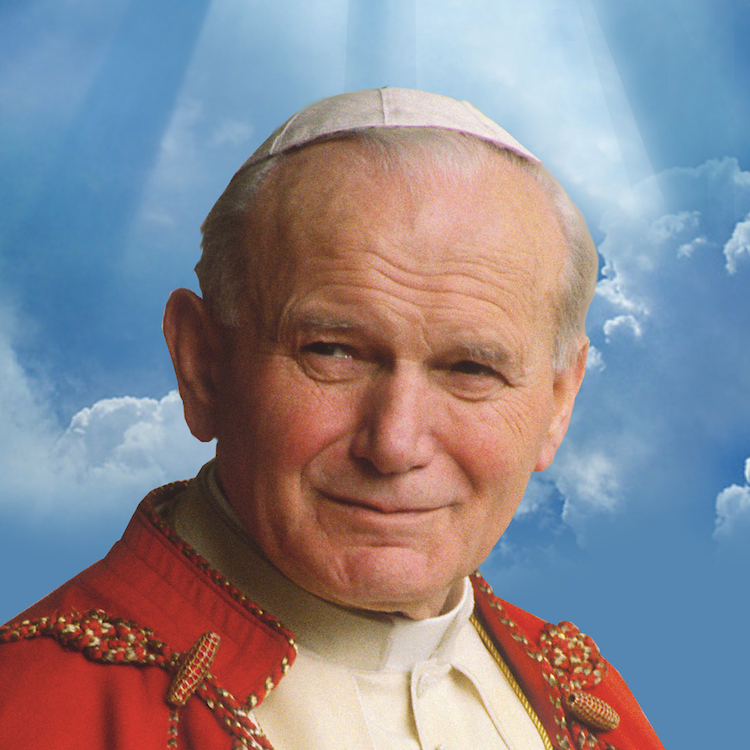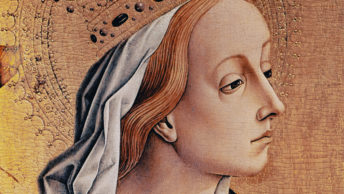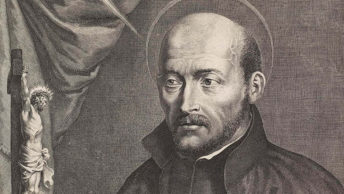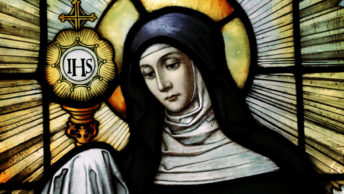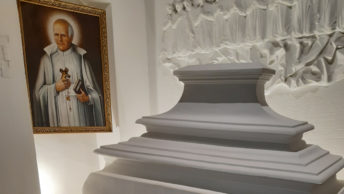The Sunday after Easter always presents the event that took place in the Upper Room one week after Jesus rose from the dead. Pope John Paul II also designated this Sunday as Divine Mercy Sunday. And today the world celebrated the Canonization of this pope whom so many refer to as John Paul the Great. I believe I can tie all three of these themes together.
There are times that we have doubts in our faith. The Gospel tells the story of someone who doubted Jesus, the story of doubting Thomas. To me it is understandable that Thomas had doubts. I am sure that he doubted Peter and the others who had said that they had seen the Lord. These are the same guys who only a few months earlier were squabbling with each other over who would be the most powerful in the Kingdom of God. Jesus had told them that they would be tested, but with the exception of John, they had all deserted the Lord, including Thomas, who in his own bravado had said earlier, “Let’s go with him to Jerusalem and die with him.” The fact that Thomas was nowhere to be found at the crucifixion must have left him with some pretty negative feelings about himself. And what was probably most devastating to Thomas is that for the first time, he questioned his belief in Jesus. So Thomas was vocal in his doubts. He doubted the other disciples. He doubted himself. And he doubted the Lord. This obviously changed when he saw the Lord. Pictures will often show Thomas putting his hands in the marks of the nails on Jesus’ hands and touching the Lord’s side, but actually Jesus only invites Thomas to do this. Thomas’ response to Jesus was, “My Lord and My God.” Jesus’ next comment was meant for us, “You believe because you have seen. Blessed are those who have not seen yet believe.”
We have doubts in our faith. That is part of being a human being. Faith asks us to take a step, a leap actually, away from all that we can see, hear and sense, a step away from the limits of our rational capabilities and a step into mystery. This is a difficult step for all of us, but particularly difficult for us as our minds develops their intellectual prowess. When we become teens, if not a bit before, we can do things with our mind that we could not do as children. We can think in abstractions. We can conceive concepts that do not exist in the real world but do exist in the world of mathematics, in the world of literature, psychology, and so forth. When we were eight, we could not fathom something that could not exist in the real world. We can now. When was the last time you came across the square root of two? It exists only in our minds. We have studied how a poet or author can create a totally imaginative world and apply human emotions to this world to such an extent that the reader can easily confuse the world with reality. And we have studied how certain psychological realities determine people’s actions, even though those realities are not physical but are purely mental.
But, now faith asks us to take a step into a deeper reality, into that which is beyond our intellectual capabilities, a step into a knowledge our minds can never come to on their own. So, it is normal for humans to doubt, particularly as Teens, but actually throughout our lives. Add to that the fact that many in our society transfer their own questions and doubts onto others, attacking the faith of those who believe, particularly the faith of Catholics. We take courses in high school, college and grad school with other students who question our faith. We even have to put up with some teachers and professors who treat us like naive children because we say that we believe in the Bible and the teaching of the Church. On top of all this, we have crises in our lives where our prayers appear to go unanswered. We pray for our parents to stop fighting, but they don’t. We pray that our grandmother might get over her sickness, but she doesn’t. We hear about the people who died in natural disasters like earthquakes and tornadoes, we are aware of the children who are starving to death in Africa, the suffering taking place in Haiti, etc, and we begin to question if anyone is hearing our prayers. Doubts in faith are normal. It takes courage and determination to say, “In spite of what others say, and in spite of my own questions, I still believe, Lord. I believe in your Word in the Bible. I believe that your Son became one of us as the Bible said He would. I believe that His sacrificial love on the cross earned for us the very life of God. I believe that no matter what my eyes see or don’t see, my ears hear or don’t hear, no matter what my mind can determine or what its limits are, you are still there for me, loving me, filling me with a joy that doesn’t go away.”
And God, in His Mercy, sees us for whom we are, human beings with doubts, but also people who have experienced His Love and want more of it. We might feel bad about ourselves for having doubts, but His Mercy, His Divine Mercy, is so great that He sees us not as people with doubts, but as people who are searching for Him. That’s why Divine Mercy Sunday fits so perfectly with the gospel of doubting Thomas, ordinary people like you and I called to have extraordinary faith.
St. Pope John Paul II was, really, an ordinary man called to have extraordinary faith. He had an extremely difficult life as a child and Teen. His mother died when he was nine. His older brother, a young doctor whom little Karol Wojtyla looked up to, died while still in his 20’s. Karol’s best friends, many of whom were Jewish, were hunted and killed by the Nazis. He was forced by the Nazis to work in the mines and given very little food to sustain his large body. He was even hit by a German truck and left to die on the side of the road. He survived and continued working to keep the faith alive in Poland. Karol was part of two secret religious groups, the Living Rosary and the Rhapsodic Theater, where Karol not only acted but wrote plays. When he decided to become a priest, he had to study secretly. Every day he and another clandestine seminarian, Jerzy Zachuta, would jeopardize their lives to assist a priest at Mass. One day, his friend did not show up for Mass. The Nazis learned that Jerzy was studying to be a priest and executed him. Still, Karol continued growing in his faith. He knew that the people needed priests more than ever. And he knew that somehow God would work His wonders through him. Karol was extremely intelligent, so intelligent that he understood there were limits to what his mind can come to but no limits to the knowledge that faith could provide. The war ended, but the Nazis were replaced by the Russians and their Polish communist puppets. The new priest, Fr. Wojtyla still continued in faith, fighting to proclaim the Truth of Jesus Christ. He continued this fight through the priesthood, episcopacy and the papacy. In everything all that mattered for St. John Paul was Jesus Christ and His Kingdom.
So, putting it together, Karol Wojtyla was a human being who suffered crisis after crisis, but held on to his faith. He was extremely intelligent, brilliant actually. But he knew that his mind could only go so far. Faith had infinitely more to offer than his rational skills. He was tested with a difficult life, but He knew that God was there through it all.
We need to pray to St. John Paul II today to intercede with the Lord for us. We need faith. We need forgiveness for the times that our humanity has led us to doubts. We need to trust in the Divine Mercy of the Lord. We need courage to withstand the attacks of the godless upon us. We need spiritual strength to take a leap away from those who belittle us for our beliefs, a leap away from our own doubts, a leap that refuses to let the crises of our lives destroy our faith, and a leap into the arms of our Savior.

